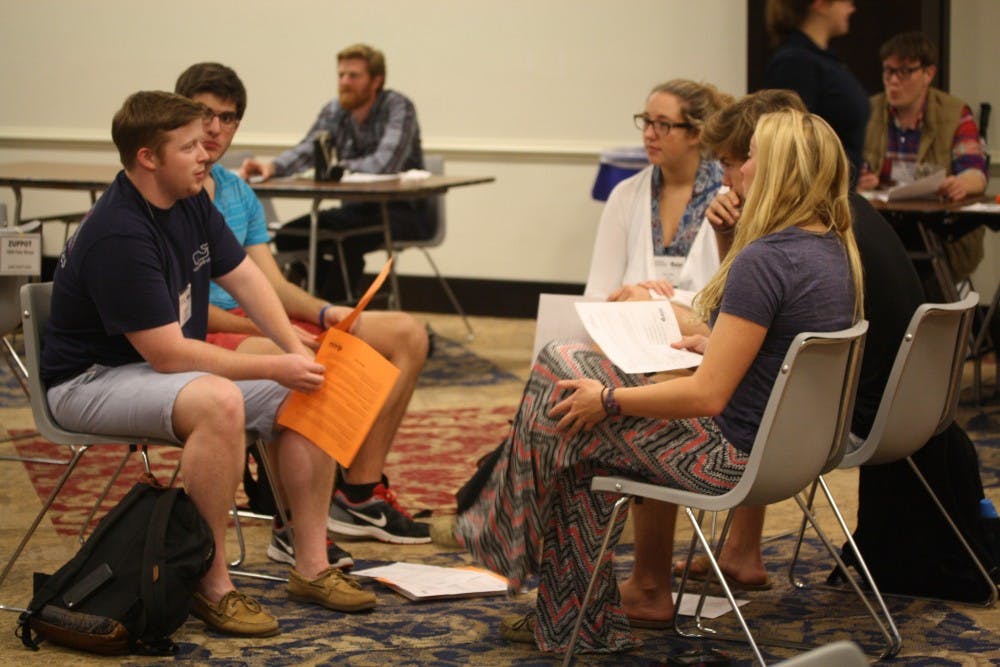The ninth annual poverty simulation at University Richmond sought to teach students about the daily hardships faced by Richmond families living in poverty.
Hosted by the Bonner Center for Civic Engagement and the Office of the Chaplaincy, the event aimed to serve as an advocacy tool to build an understanding of the realities of living in poverty while encouraging respect for low-income people encountering the challenges of poverty.
Students operated in family units for four periods representing weeks. Each family received an amount of money representing their income and some received food stamps. Twelve tables set up around the Alice Haynes Room represented available services and facilities such as the local public school, the office of social services and the grocery store. The goal was for every family to meet its daily needs such as paying for food, taking the children to school and going to work.
“It’s super hard to prioritize. Do I sit in line for food stamps or do I try to get a job?” sophomore Noelle Anna said.
Students also had to buy transportation cards for travel.
“Transportation was the first thing we bought and we bought a lot of it,” sophomore Bryan Gabrielle said.
Families could receive luck-of-the-draw cards if their names were randomly selected. These cards represented the unexpected hand of fate in life.
Each week students planned with their families in the morning period, completed tasks at the service tables and then returned to their families in the evening.
In the simulation, sophomore Colleen Egan had an older brother who worked all day and was suspended from school for one week for cheating on a test.
“It all made me feel really discouraged and frustrated,” Egan said.
“We had to sell our TV because we needed money. It was worth $100 but the guy would only give us $30 for it,” she said.
Throughout the event, Adrienne Piazza, manager for educational initiatives and leadership development at the CCE, and Molly Fields, community engagement program manager for the Chaplaincy, told students statistics and facts about poverty in Richmond. This year’s event included a greater quantity of statistics. More than 69 percent of jobs in Richmond are inaccessible by public transportation and outside the limits, Piazza said.
Enjoy what you're reading?
Signup for our newsletter
Following the simulation, the 52 students gathered in small groups with the 19 faculty members to discuss their conclusions and thoughts on the simulation.
Kate Lafayette, along with the majority of the students present, attended for her Justice and Civil Society class. She had to pay her family's mortgage and buy food in addition to a number of other tasks.
“I’m not even used to having to worry about most of those issues at all,” Lafayette said. “It shows how difficult it is not only to be in poverty but to be an adult in general.”
Most students were not able to meet all their needs with the given money. In one small group, nobody bought the necessary amount of food or any of their prescription medicines.
Piazza encouraged students to allow the simulation to help them think analytically about poverty instead of simply getting caught up in the seemingly fun components of the simulation.
“It’s difficult in the moment to digest it all but I think the small group discussions really helped with that,” she said.
The CCE and Chaplaincy plan to host another poverty simulation during the spring semester.
Support independent student media
You can make a tax-deductible donation by clicking the button below, which takes you to our secure PayPal account. The page is set up to receive contributions in whatever amount you designate. We look forward to using the money we raise to further our mission of providing honest and accurate information to students, faculty, staff, alumni and others in the general public.
Donate Now



